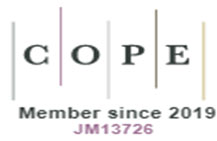G N Sumathi
The purpose of the paper is to signify the effect of factors relating to knowledge management on quality care to patients. A theoretical framework is proposed linking healthcare practitioners’ motivation, knowledge adoption, adaption to web technologies and knowledge friendly culture on quality of care given to patients. The study includes two levels of variables to impart quality care, one is at the level of healthcare practitioner and another is at the organizational level. The factors regarding healthcare practitioner include the motivation to use knowledge management system, knowledge adoption and adaption to web technologies. The factor relating to organization includes the knowledge friendly culture. The conceptual model could be empirically tested using data from healthcare organizations. Propositions are posited for further research. The paper provides value to academicians and practitioners. The outcomes of the empirical study would identify the key factors that pushes healthcare practitioner to contribute to knowledge management system and the policy level modifications could be made to develop, alter and sustain knowledge friendly culture.
[1] Abidi, S. S. R. (2001). Knowledge management in healthcare: towards ‘know-ledge-driven’decision-support services. International Journal of Medical Informatics, 63(1), 5-18. http://dx.doi.org/10.1016/S1386-5056(01)00167-8
[2] Alali, H., & Salim, J. (2013). Virtual communities of practice success model to support knowledge sharing behaviour in healthcare sector. Procedia Technology, 11, 176-183. http://dx.doi.org/10.1016/j.protcy.2013.12.178
[3] Bose, R. (2003). Kno wledge management-enabled health care management systems: capa-bilities, infrastructure, and decision-support. Expert systems with Applications, 24(1), 59-71. http://dx.doi.org/10.1016/S0957-4174(02)00083-0
[4] Brian, D. P. (2006). Final Report of the Federal Advisor on Wait Times. Ottawa, Canada: Health Canada.
[5] Cegarra-Navarro, J. G., & Cepeda-Carrión, G. (2010). How to implement a knowledge management program in hospital-in-the-home units. Leadership in Health Services, 23(1) , 46–56. http://dx.doi.org/10.1108/17511871011013760
[6] Chen, Y. H., Liu, C. F., & Hwang, H. G. (2011). Key factors affecting healthcare professionals to adopt knowledge management: The case of infection control departments of Tai-wanese hospitals. Expert Systems with Applications, 38(1) , 450–457. http://dx.doi.org/10.1016/j.eswa.2010.06.085 110
[7] Cudney, E. A., Murray, S. L., Sprague, C. M., Byrd, L. M., Morris, F. M., Merwin, N., & Warner, D. L. (2015). Engaging Healthcare Users through Gamification in Knowledge Sharing of Continuous Improvement in Healthcare. Procedia Manufacturing, 3 , 3416-3423. http://dx.doi.org/10.1016/j.promfg.2015.07.613
[8] Davenport, T. H. & Glaser, J. (2002). Just-in-Time Delivery Comes to Knowledge Man-agement, Harvard Business Review, 80(7) , 5–9.
[9] Dawes, M. & Sampson, U. (2003). Knowledge management in clinical practice: a systematic review of information seeking behavior in physicians.International journal of medical informatics, 71(1) , 9–15. http://dx.doi.org/10.1016/S1386-5056(03)00023-6
[10] El Morr, C., & Subercaze, J. (2010). Knowledge management in healthcare. Handbook of research on developments in e-health and telemedicine: Technological and social perspetives, 490-510. http://dx.doi.org/10.4018/978-1-61520-670-4.ch023
[11] Kothari F. J., Gutenstein, M., Khan, O., South, M. & Thomson, R. (2015). Open Clinical. net: A platform for creating and sharing knowledge and promoting best practice in health-care. Computers in Industry, 66, 63–72. http://dx.doi.org/10.1016/j.compind.2014.10.001
[12] El Morr, C., Subercaze, J., Maret, P . & Rioux, M. (2008). A Virtual Knowledge Community for Human Rights Monitoring for People with Disabilities. Paper presented at the IADIS – Web Based Communities Conference (WBC’08).
[13] Gold, A. H., Malhotra, A. & Segars, A.H. (2001). Knowledge management: An organiza-tional capabilities perspective. Journal of Management Information Systems, 18(1) , 185–214.
[14] Gonçalo, C. R. & de Lourdes Borges, M. (2010). Healthcare Services Based on Knowledge Structure. Journal of Health Management, 12(4) , 553-572. http://dx.doi.org/10.1177/097206341001200409
[15] Gowen III, C. R., Stockb, G. N. & Mcfaddenc, K. L. (2008) Simultaneous implementation of Six Sigma and knowledge management in hospitals. International Journal of Production Research, 46(23) , 6781–6795 http://dx.doi.org/10.1080/00207540802496162
[16] Gupta, B., Iyer, L. S. & Aronson, J. E. (2000). Knowledge Management: practices and challenges. Industrial Management and Data Systems, 100 (1), 17–21. http://dx.doi.org/10.1108/02635570010273018
[17] Holsapple, C. W . & Joshi, K. D. (2002). Knowledge Management: A Threefold Framework. Information Society. http://dx.doi.org/10.1080/01972240252818225
[18] Horwitch, M. and Armacost, R. (2002). Helping knowledge management be all it can be. The Journal of Business Strategy, 23(3), 26–31. http://dx.doi.org/10.1108/eb040247
[19] Janz, B. D & Pattara wan (2003). Understanding the Antecedents of Effective Knowledge Management: The Importance of a Knowledge-Centered Culture. Decision Sciences, 34(2), 351–384. http://dx.doi.org/10.1111/1540-5915.02328
[20] Kothari, A., Hovanec, N., Hastie, R. &, S. (2011). Lessons from the business sector for successful knowledge management in health care: a systematic review. BMC health services research, 11(1) , 173. http://dx.doi.org/10.1186/1472-6963-11-173
[21] Lasierra, N., Roldán, F ., Alesanco, A. & García, J. (2014). Towards improving usage and management of supplies in healthcare: An ontology-based solution for sharing know-ledge. Expert Systems with Applications, 41(14) , 6261-6273. http://dx.doi.org/10.1016/j.eswa.2014.04.023
[22] Liebo witz, J. (1999). Knowledge Management Handbook. Boca Raton, FL: CRC Press.
[23] Lin, H. C. (2014). An investigation of the effects of cultural differences on physicians’ per-ceptions of information technology acceptance as they relate to knowledge management systems. Computers in Human Behavior, 38 , 368–380. http://dx.doi.org/10.1016/j.chb.2014.05.001
[24] Mutuw a, P. L. & Maiga, G. (2014, July). A knowledge management model for pediatric health care practice. In Science, Computing and Telecommunications (PACT), 2014 Pan African Conference on (pp. 40–45). IEEE. http://dx.doi.org/10.1109/scat.2014.7055134
[25] Orzano, A. J., McInerney, C. R., Scharf, D., Tallia,A. F., & Crabtree, B. F. (2008). A know-ledge management model: Implications for enhancing quality in health care. Journal of the American Society for Information Science and Technology, 59(3), 489–505. doi:10.1002/asi.20763 http://dx.doi.org/10.1002/asi.20763
[26] Parikh, M. (2001). Knowledge management framework for high-tech research and development. Engineering Management, 13 (3) , 27-33.
[27] Shahzad, K., Bajw a, S.U., Siddiqi, A.F.I., Ahmid, F. & Sultani, A.R.(2016) Integrating knowledge management (KM) strategies and processes to enhance organizational creativity and performance: An empirical investigation, Journal of Modelling in Management, 11(1) ,154–179 http://dx.doi.org/10.1108/JM2-07-2014-0061
[28] Sivanantham, V. (2012). Knowledge Management in Agile Projects, Cognizant 20-20 in-sights. Retrieved from http://www.cognizant.com/InsightsWhitepapers/ Knowledge-Management-in-Agile-Projects.pdf
[29] Sussman, S. W. & Siegal, W. S. (2003). Informational Influence in Organizations: An Inte-grated Approach to Knowledge Adoption. Information Systems Research, 14(1) , 47–65. doi:10.1287/isre.14.1.47.14767 http://dx.doi.org/10.1287/isre.14.1.47.14767
[30] Swaminath, G. & Raguram, R. (2010) Medical errors – I: The problem. Indian J Psychiatry. 52(2) , 110–112. http://dx.doi.org/10.4103/0019-5545.64580
[31] Vallat, D., Bayart, C. & Bertezene, S. (1997) Serious games in favour of knowledge management and double-loop learning?Knowledge Management Research & Practice, doi: 10.1057/kmrp.2015.29 http://dx.doi.org/10.1057/kmrp.2015.29 112
[32] Vroom, V. H. (1964). Work and motivation. San Francisco, CA: Jossey-Bass.
[33] Whiddett, D., Tretiakov, A., & Hunter, I. (2012). The use of information technologies for knowledge sharing by secondary healthcare organisations in New Zealand. International journal of medical informatics, 81(7) , 500–506. http://dx.doi.org/10.1016/j.ijmedinf.2012.02.011
[34] Zand, D. E. (1997). The Leadership Triad: Knowledge, Trust and Power. New York: Oxford University Press


